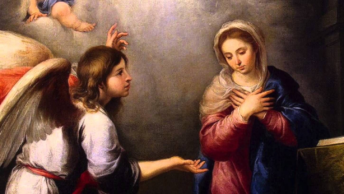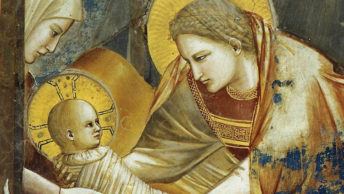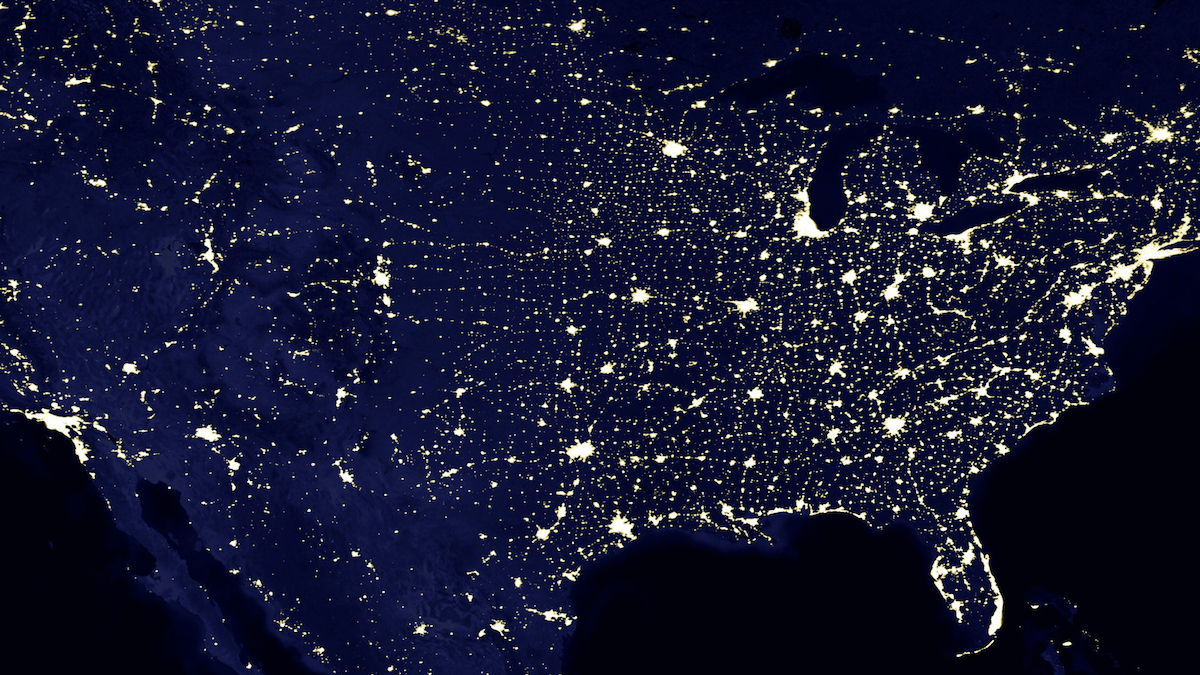Back in 2001 I was on a two-week pilgrimage in Italy, and it was a very enjoyable and spiritually rewarding time. There were twenty-five people in our group from all across the United States, and we were fortunate to have a very good guide named Elizabeth. She was actually an American, born in Philadelphia, who had been living in Italy for some years; she was a devout Catholic, and fully participated each time we had Mass or said the Rosary or Divine Mercy Chaplet—something which is rather unusual for a guide. By the end of the pilgrimage, we all agreed on two things about Elizabeth: one, that we loved her, and two, that we wouldn’t want her job.
Shepherding a group of adults, all with different interests and needs and minds of their own, is no picnic. Elizabeth was constantly counting to twenty-five, making sure she hadn’t lost anyone, and she was forever urging us to be on time because we had a rather tight schedule, since we were trying to squeeze so much in. She always threatened to leave people behind if they were late, but she admitted she wouldn’t actually do that—and so a few people in the group may have taken advantage of her. I suggested to her that from then on, on her first day with a new group, Elizabeth not only lay down the law about being on time, but also secretly arrange for one self-reliant member of the group to be late deliberately and make his or her own way to the next stop, so that she could make a point of leaving without that person, thereby showing the rest of the group she meant business. Elizabeth laughed, and then told me about one group from England, in which someone wasn’t on the bus on time, so she had to go and find the person and get him onboard. After they were ten miles down the road, trying to make up for lost time, a woman asked her, “Dear, what about my friend?” Not knowing what she meant, Elizabeth said, “What about your friend?,” and the woman explained, “She’s not here with us; when you were searching for that last passenger, she got off the bus for a moment to go have a spot of tea.” Naturally, the bus had to turn around and go back to find the happy wanderer, thereby throwing off the schedule for the rest of the day.
Many times we can get away with being late for worldly events, but that will not be true when it comes to our entry into eternity. Jesus has something wonderful prepared for us, but this happy fate is not guaranteed: we can lose our gift of salvation if we’re not spiritually ready for it. We don’t know the exact moment when we’ll encounter Our Lord, and that’s why it’s essential for us to live in a state of grace.
The Scripture passages for the First Sunday of Advent (Cycle A) contain a message of good news, but they present it with a sense of urgency. The prophet Isaiah (2:1-5) speaks of a coming time of peace and holiness, wisdom and joy, and concludes with the invitation, “Come, let us walk in the light of the Lord!” St. Paul (Romans 13:11-14) builds upon this joyful message by stressing its immediacy. He writes, “Brothers and sisters, you know the time; it is the hour for you to wake from sleep, for our salvation is nearer than when we first believed. . . .” Like Isaiah, Paul urges us to walk in the light—and this means a life of proper conduct, in which the teachings and commandments of Jesus have a higher priority than any earthly temptations or desires. Our Lord Himself stresses this point in the Gospel (Matthew 24:37-44) by giving an example of what can happen when people are unprepared for the moment of judgment. The people of Noah’s day were blinded by their sinfulness, and so they were swept away by the great flood. Jesus warned that, rather than letting something like this happen, we must be like a wise homeowner who is vigilant in guarding his house and therefore ready for whatever may come.
We do not know when the end of the world will occur; we do not know when our lives on earth will come to an end—therefore we must always be prepared. At the moment we die, we will be judged worthy, or unworthy, to share in Christ’s Kingdom—and that’s why we can rightly say the most important day of our lives will be our last one. Our eternal happiness depends on being in a state of grace when we leave this world—and because it’s not ours to know when that final moment will occur, we must do everything possible to remain in God’s grace and to be busy as His servants.
Jesus warns us in the Gospel, “Stay awake!” However, many people today seem to be spiritually asleep. What does it mean to be spiritually asleep? I think part of it involves laziness: neglecting our religious duties, not wanting to get involved when we see someone else in need, and being unwilling to make the first move in being reconciled with someone. Being spiritually asleep also involves pride: being quick to criticize others but slow to admit our own faults, nursing grudges or resentments, and assuming we’re always right and therefore refusing to consider the other person’s point of view. Being spiritually asleep also involves complacency: automatically assuming that because everything seems to be okay with us, we don’t need to take a hard, honest look at our behavior, or smugly taking it for granted that while other people may need to change, we don’t need to, and believing that we can ignore the many messages from Heaven calling us to pray and fast and do penance for our sins and those of society.
So many people are asleep in one or more of these ways—including many persons who call themselves Christians. They are taking the risk of being caught unprepared for the eventual day of judgment. Being late for a bus while on a pilgrimage or tour is a mistake that’s usually fairly easily corrected, but being late in our preparations to meet Jesus can have eternally disastrous consequences. This Advent season is not only a time of preparation for Christmas, but also a reminder of our need to prepare ourselves for eternity. To live humbly in God’s grace is to be spiritually awake, and only this approach allows us to face the future with confidence, joy, and peace.








